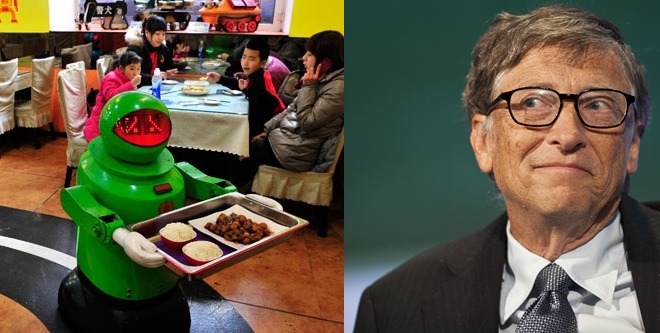
American business magnate Bill Gates has come up with a unique way to tackle the increasing involvement of robots in our daily life–tax them. The co-founder of Microsoft and world's richest man said such a move will help to counter the possible future infestation of everything we know by robots.
The problem is way more serious than what it looks to be. Tech innovator Elon Musk says, said that bots will soon take over the universe and thus the concept a cybernetic organism is no longer as outlandish as it would have a few decades ago.
Bill Gates had said that the easiest way to counter effect the loss of jobs which is being caused by the increased drive towards automation by the machines is by imposing a levy on them that would give back to the society by funding projects related to caring for the elderly or educating children in school and other philanthropic measures. This will help to give back or reverse some of the damage that has been caused by their integration in the process. "Right now, the human worker who does, say, $50,000 worth of work in a factory, that income is taxed and you get income tax, Social Security tax, all those things," he said, as reported.
"If a robot comes in to do the same thing, you'd think that we'd tax the robot at a similar level," he added.
The nitty-gritty's of the system will need to be worked out and there should be a proper groundwork in the process to implement such a radical idea. According to Gates, the governments should seriously start to ask questions and see the need for such a measure. "Exactly how you'd do it, measure it, you know, it's interesting for people to start talking about now," Gates said. "Some of it can come on the profits that are generated by the labor-saving efficiency there. Some of it can come directly in some type of robot tax. I don't think the robot companies are going to be outraged that there might be a tax. It's OK."









